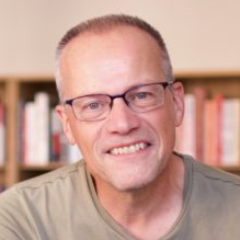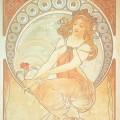The dilemma of man :
Man is able both to rise to great heights and to sink to great depths
of cruelty and tragedy.
Anyone with sensitivity and concern for the world.. can sense this
dilemma...
Of course it is possible to try not to get involved.. but the only
way would be to be young enough, well enough, having money enough,
and being egotistic enough to care nothing about other human beings.
As [to man's dilemma]
..only two possible explanations can be given .. that Man is too
small, too finite to wrestle with what confronts him.. The second
explanation is quite different, it puts man's dilemma down to a
moral cause.
If the first explanation is the right one, then one is bound to
conclude that man has always been in the same dilemma - that Man
has always been fallen man. This also means that there is no
moral answer to the problem of evil and cruelty.
Because man, whether somehow created by a curious thing called god
or kicked up out of the slime by chance, has always been in this
dilemma, this being a part of what being Man is.
If this is what man intrinsically is, and he has always been like
this, then.. Baudelaire is right when he says: 'If there is a God,
he is the devil'.
This statement was simply the logical deduction from the premise
that man, with his cruelty and suffering, is now as he always has
been. At this point Baudelaire was consistent and refused to give
anny kind of romantic alternatives as an explanation.
But the Bible says that this is not the situation. (...)
..the modern non-christian answer denies the legitimacy of moral
absolutes, refuses to pass any kind of moral comment on man's
actions and thus reduces cruel and non-cruel deeds to the same
level. With this answer, not only is the concept of sin reduced
to less than the biblical concept, but man is reduced to less
than the biblical concept of guilty man. (...)
There need be no either--or in La Peste:
Without absolutes, morals as morals cease to exist - and
humanistic man starting from himself has failed to find the
absolute. But because God of the Bible is there, real morals
exist.. we can say that one action is right, and another wrong,
without talking nonsense.
The Christian never faces the dilemma posed in Camus' book
La Peste. It simply is not true that he either had to side
with the doctor against God by fighting the plague, or join with
the priest and thus be much less than human by not fighting the
plague. (...) Jesus, standing at the tomb of Lazarus, was angry
at death and at the abnormality of the world; the destruction
and distress caused by sin. He could hate the plague without
hating Himself as God.
A Christian can fight with compassion what is wrong in the world
and know.. that God hates these [abnormalities] too.
God hates them to the high price of the death of Christ.
But if one lives in a world of non-absolutes and would fight
social injustice on the mood of the moment.. what criterion do I
have to distinguish between right and wrong? ... the word 'love'
cannot tell me how to discern, for within the humanistic frame-
work, love can have no definite meaning.
Once we comprehend that Christ who came to die to end 'the plague'
both wept and was angry at the plague's effects, we have a reason
for fighting that does not rest merely on my momentary disposition,
or on the shifting consensus of men. (...)
The Christian is the real radical of our generation, for he stands
against the monolithic, modern concept of truth as relative -
we believe in the unity of truth. But too often, instead of
being the radical, standing against the shifting sands,
he subsides into merely maintaining the status quo.
If it is true that evil is evil, that God hates it to the point
of the cross -- and that moral law is fixed in what God is in
Himself, then Christians should be the first into the field
against wrong -- including man's inhumanity to man.
We need to be challenged at this point.








































